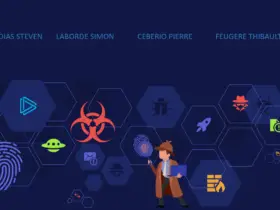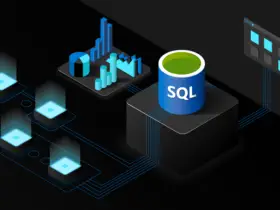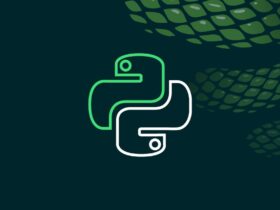
Top 20 Python Tips and Tricks You Must Know in 2020-21

Python programming language is still experiencing incredible growth. GitHub, home of over forty million developers, publishes a yearly report visualizing the whole developer ecosystem. GitHub Octoverse says Python has become the second most popular language by dethroning the mighty Java! According to Stack Overflow Trends, Python has already surpassed all major programming languages. No better time to be a Python ninja and rule the developer herd. These full-fledged Python tips reveal the way to master this Swiss army knife!
Python Tips and Tricks to Give You the Kick-start!
This well-crafted article will show how you can get good at Python. All these tips and tricks will make you a better Python Developer. If you are a beginner, you are in for a treat! Python is very easy to learn. Its syntax is very compact and clean. If you are up for it, you can master it within months. Python is truly ubiquitous. Software Development to Data Science, Machine Learning to Artificial Intelligence — you can do everything. Let’s show you how to become a Pythonista!
01. Code, Code, Code — Play like You Own Python!

What makes your Python perfect? More coding! Here, the key to learning is to play more with syntax. You can just start with the good old Hello World! Then dig into Variables, Strings, Data Types, Operators, etc. Take your time and understand the fundamental concepts. Twist the syntax and discover!
People say, ‘learn to ride a bicycle by practically riding it, not by just reading books!’ The same goes for it too. Don’t just read or watch tutorials, write those codes yourself! You may not understand everything while learning, likely. So, have patience! One quick tip is, take care of your whitespaces. And, try to dig deeper — why things are happening, debugging messes. Go beyond the software layer and explore!
02. Pick a Text Editor or IDE — Follow Your Heart, Not Features!

Like to hack around with your tools? Prefer the freedom over stability? Python text editors can be your coding place. My favorite one is the Visual Studio Code from Microsoft. Love it for its humongous collection of extensions. You may try another famous editor — Sublime Text. GitHub’s Atom is worth trying too.
An IDE is your best bet if you prefer a full-fledged professional environment. IDEs are more powerful, heavy-weight, and resource-hungry. These tools are well-equipped for production-level code development. My favorite Python IDE — PyCharm! It’s like a godsend. If you are a Linux savvy, check out the best Python IDE for Linux.
03. Find and Follow a Mentor who truly Comforts You!

Suggesting a good mentor is one of the best Python tips you will find out there. Engaging learning materials make coding journey compelling. Find a source that emerges the Python passion in you. That could be a trainer, a group of people, or maybe a course. Mostly, it’s hard to stay motivated while learning online all by yourself. If you find a good mentor in person, learning will become more fun!
The other way around, there are thousands of self-motivated people becoming Python-literate just by googling. A ton of free educational elements like Mosh, freeCodeCamp, and CS Dojo has made learning much more accessible. Encourage yourself to utilize all these facilities promptly.
04. Don’t be too Lazy or Burn Yourself Out — Find that Balance!

Coding is simple, but some concepts are not. It takes time and practice. Let me mock Jack Ma’s famous quote, “Coding is difficult today, coding is much more difficult tomorrow, but coding is beautiful the day after tomorrow. Most coders die tomorrow evening.” So, keep pushing yourself!
But don’t overwork! Practice a couple of hours a day; that’s it. Explore new ideas! The goal is to learn programming in general, not some random Python features. It’s normal to forget these topics even after a lot of practice, so don’t get stressed or disappointed. Just don’t lose your hope and rhythm!
05. Take an Online Python Course and Finish it — Do All the Coursework!

Can’t make time regularly? Then you can opt-in for online Python courses rather than mentoring. I like online courses because they are more intuitive, project-driven, and helps to practice how to solve real-life problems. Bootcamps are expensive, so most newcomers are choosing this option. Online courses save you from communication and commute if you care.
One tiny tip — before getting enrolled, check whether that course offers certification or not. Certificates are proof of your competence. We have recommended some Python Courses and Certifications. You will find a lot of job-ready courses here — Coursera, Udemy, edX, Udacity. Join any of those and take your Python skills to the next level!
06. Develop Something Meaningful, Not Just for Portfolio!

Work on exciting projects to taste the real Python! Don’t limit yourself to regular projects. Learning the basic Python tips is just the beginning. Try to discover something that ignites interest in you. Then develop that solution to make yourself proud! You can build anything with Python; go for it!
Create games using Cocos2D, Panda3D, Pygame, or apps with Django, TurboGears, CherryPy, or software with web2py, Selenium, CubicWeb; whatever you like. These frameworks provide the opportunity to build compelling projects that you can showcase. Python frameworks won’t give you a chance to get bored.
07. Hunt Down Your Python Bugs — Don’t Lose Patience!

Bugs are nightmares for any programmer. You will get to deal with many bugs once you start coding. Not doing anything about it will harm your project. No matter how much you try, there will always be bugs on your codes. So, you will need to learn how to get rid of them and fix related issues.
You can use some testing frameworks to handle bugs and tricky corner cases of your code. This process is usually known as unit testing. Be familiar with it. Test-driven development is getting popular only because they handle the bugs well.
08. Find Yourself a Python Partner and Do Pair Programming!

Python is an easy to learn programming language. However, practicing all by yourself can lead you to limitless boredom. You can follow python tips for a certain time, but still, you will miss the team effort. A helping hand can offer a productive environment for you. In fact, in most cases, pair learning can help you to learn Python a lot faster and with more fun.
The best thing you can do to get the benefits of pair programming is to find someone or an enthusiastic group of programmers who are as interested as you, fix a specific time when you and your teammates are available, and start practicing Python. Learning in pairs can become very effective and often creates a joyful environment for beginners.
09. Set Realistic Goals — Share It with Others to Stay Motivated!
It doesn’t matter how dedicated you are in learning Python, and it will not be enough unless you set a goal toward it. You don’t have to take a large amount of Python lessons in hand and burn out at the end of the day. Divide your time with other routines of the day. Take one lesson at a time.
For example, if you are up to Polynomial Regression in Python, spend your specific hours of learning Python covering that particular topic only, cover it if possible and practice the exercise. Don’t try to jump onto other Python lessons. Let your teammates know of your regular targets and how motivated you are. This will surely cheer them up and help you to track your improvement every day.
10. Track Your Python Progress and Stay Relevant!
Your dedication to learning these python tips will go in vain if you don’t keep track of what you are learning. Every day you are learning a new thing in Python. In a week, you will cover some more parts of Python. After some days, you will be lost in a dilemma memorizing what you have learned all the way.
What’s the solution? After every week, maintain a schedule of going through previous things you have learned in Python. Remind yourself of what you have covered so far in Python and revise what you can. Don’t try to revise all the things at a time but fix some specific topics you have learned previously and practice on them.
11. Dive Deep into Python; It Never Ends
The moment you think it’s the end of learning. It’s not. Every day you are learning new things in Python. At a time, you might consider yourself as the ship of Python. This is where you are wrong. It is never an end of the trip with learning.
After completing the basic tutorials and exercises. You should focus on other aspects of Python. Such as how you can create something with Python. It’s okay to feel confused at the beginning, but Python offers a huge number of libraries and packages that will help you to complete an entire project from scratch.
12. Follow the Python Trends, Never Leave the Herd!
The programming world evolves every now and then. New versions of Python with new improvements and updates are regularly released. If you keep out of the trend and become a lonely wolf, you might end up with the old versions of Python.
Moreover, new python libraries and frameworks are regularly adding to the list. If you keep out of your community, you will lose track of what you are doing and miss the opportunity to use the new frameworks and libraries in your work. Trust me, and it’s fascinating to enhance your project with advanced releases of Python. You can check out our list of Best Python Libraries and Packages and Best Python Web Framework here.
13. GitHub, Stack Overflow, Reddit — Make these Your Home!

Resources are the main weapon. Whether you are mastering python tips alone or in a group, often, you will be challenged with questions that need a special inquiry. Well, the internet offers you a huge opportunity to satisfy your hunger. There are several online platforms that can become a reliable resource of information for you.
If you are already not familiar with GitHub, Stack Overflow and Reddit, we say you start now. Sign up on any of these online platforms. These are some dedicated platforms for programmers and many others. You will find thousands of enthusiastic programmers, beginners, and professionals here. An online hub to listen to your every word is really helpful for your personal improvement and experience with Python.
14. Learn to Google before You Need It and Suffer Less!

Google is your biggest friend in times of need. You might not feel like seeking help from your online friends, or they may not be available in extreme hours. Feel free to browse your inquiry on Google. Google provides all the solutions that you need.
It is extremely quick and fast to search through the internet via a reliable search engine like Google. The Internet is the sea of information. All you need is to put the right question or keyword to get your relevant data. There are some other search engines like Bing, Yahoo, ask.com. But Google is the most popular one among them.
15. Ask for Help — Join the Python Community!

The Python community can offer you more than you imagine. The online platform connects all the Pythonistas as a global hub of communication. Being connected to a community will help you to get the latest updates, keep track of others’ progress, and begin a conversation.
Pyslcakers is the official online platform for Python offered by Python.org. It is a place of endless resources for those who are beginning and who have already paved their way with Python. It will help the beginners to learn from the professionals and get under a reliable mentorship. You can also join Python forums to learn all about Python.
16. Get Out of Your Comfort Zone and Challenge Yourself!

You will never learn enough if you never dare to challenge yourself. If you explore the Python world within the boundaries you have set for yourself; the journey will not be favorable for you. There are always some parts of Python that you are so confident about. But then again, if you only take projects that are within your fixed boundaries, it will never add value to these python tips.
You must challenge yourself, set new goals to face the challenge, and try new projects that you have never tried before. And don’t worry if you fail once or more. Through the entire process, you will learn new things about Python that you haven’t learned before.
17. Keep It Close — Don’t become a Dinosaur!

Programmers need to be connected with the community. Apart from regular updates of Python, there are a lot of things to know about. Such as what is trending right now, how you can utilize the use of Python, and enhance your projects. Remember, being a programmer is also about how you can make the best use of resources around you.
Learning how to code is fine. But the fight begins with the real world. Being a potential programmer, you also have to know how efficient your contribution will be in the programmers’ world. Hence, keep it close with the community and follow the wave.
18. Teach Python to Others to Teach Yourself Better — It Works!

Once you become a potential Python programmer, begin to teach others as well. Teaching is a great way to give the knowledge back to yourself. There are a lot of beginners out there who are seeking help from professionals. You can start mentorship programming for them.
When you decide to teach others, it will not only enrich your knowledge but also increase your confidence. Teaching plays a vital role in your career as a python programmer. The sooner you begin, the better it is for you.
19. Contribute to the Significant Python Projects and Stand Out!

After finishing your session (whether it is online or offline), begin to take projects from smaller to larger scales. Once you are capable of mastering the skill, no challenge will fear you. Instead, you will be gradually able to contribute to the Python community with new and exciting projects.
Python is very reliable for developing long term projects such as for APIs or any kind of backend systems. You can also use Python for plenty of other projects. Hence, if you are still worried about what you can do with Python. Don’t be. You can check the significance of Python along with some other programming languages here.
20. Become an Authoritative Pythonista and Establish Yourself as a Brand!

Establish your identity as a potential Python programmer inside and outside the Python community. This will help to build a notable standard for you in the Python programming world. Many reputable software and programming companies will be drawn by your contribution. Where to start?
Develop a portfolio of your own that presents the list of Python projects you have done so far. Divide them based on different categories. If possible, build a personal website highlighting your projects. This way, it will be easy for others to take a look at your hard work without having to contact you directly.
Here end my exclusive Python Tips for starters. Anyone who is struggling with how they can boost up their journey with Python, these 20 quick tips can really help them to improve. Also, if you find others who are finding it hard to learn Python, you can share our article with them. It will surely cheer their way!


























Leave a Reply